#dean spade
Text
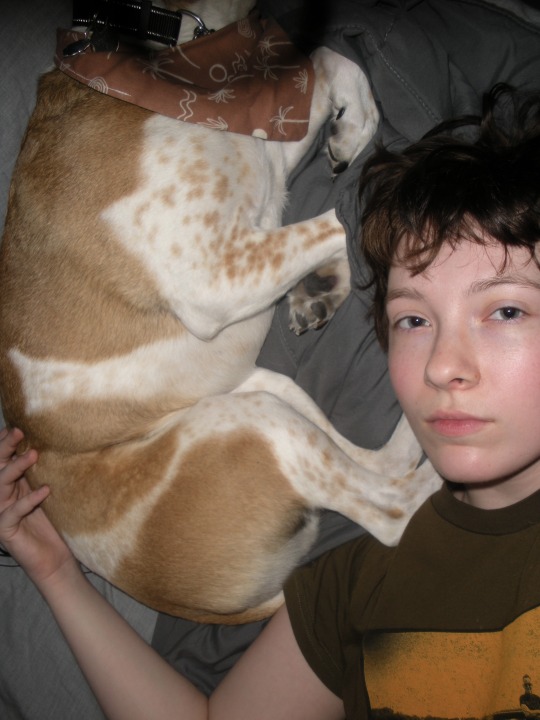


Please help a working trans butch boy in Florida get top surgery! (especially if you’re into my nsft content on @arborbutch,) I’ve been wrestling with dysphoria for years, and my breasts are sacks of dead tissue I’ve desperately needed gone. I can’t save up by myself because everything I earn at my full-time job needs to go to moving out of FL ASAP. The top right photo shows me binding (healthily) to the flattest I can get (at a sneaky 3/4 angle)… Read more about my story & need in the gfm’s bio :) Thank you for any and everything!
#neocities#indie web#butch#baby butch#trans butch#ftm butch#top surgery#queer nsft#queer#dyke#trans dyke#transfag#fagdyke#dean spade#aid#transsexual#transmasc#trans rights#trans nsft#butch nsft
77 notes
·
View notes
Text
A cultural narrative about social justice entrepreneurship has also emerged in recent decades suggesting that people should not fight for justice but rather invent and patent new ways of managing poor people and social problems. One example of this kind of entrepreneurship that has received media fanfare is Samaritan and other smartphone apps that coordinate digital donations to homeless people in ways that ensure restrictions on how they can use the cash. These apps are more focused on the experience of the giver than on the person in need of aid, and are designed to make the giver more comfortable...
— Mutual Aid: Building Solidarity During This Crisis (and the Next) by Dean Spade
7 notes
·
View notes
Text
"Sometimes while I ride the subway I try to look at each person and imagine what they look like to someone who is totally in love with them. I think everyone has had someone look at them that way, whether it was a lover, or a parent, or a friend, whether they know it or not. It’s a wonderful thing, to look at someone to whom I would never be attracted and think about what looking at them feels like to someone who is devouring every part of their image, who has invisible strings that are connected to this person tied to every part of their body…I wish I thought about people like this more often. I think it’s the opposite of what our culture teaches us to do. We prefer to pick people apart to find their flaws."
- For Lovers and Fighters
An essay by Dean Spade
8 notes
·
View notes
Text
youtube
We as Queer People have a duty to understand Pink-Washing. We must see through our identities being used to perpetutate violence.
This incredible documentary by a trans Law Professor details how this works. 7 years ago, in Seattle, they successfully worked with other activists to shut down a single pink-washed event. The backlash from the Israeli state is something we all can learn from.
#Education#educational material#israel#palestine#pinkwashing#queer#dean spade#trans#gay#freepalestine#free palestine#documentary#video#Youtube
13 notes
·
View notes
Text
This is the best account on YouTube. Please, it's so wholesome and sweet. Go check it out. It's like lefty lofi audiobooks.
The person running the account is an anarchist, but even if that's not your leaning, the readings are not exclusively anarchist. I'm currently listening to their playlist on relationships and love (kicking off with Dean Spade's classic For Lovers and Fighters) but I'm looking forward to listening to the social change playlist, their reading of Robin Wall Kimmerer's Braiding Sweetgrass and bell hook's The Will to Change as well as perhaps literally everything on the channel.
36 notes
·
View notes
Text
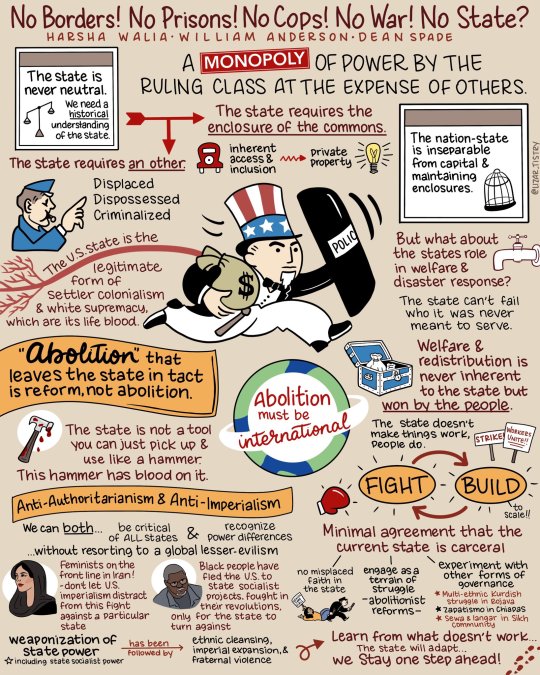
"the state can't fail who it was never meant to serve."
29 notes
·
View notes
Text
"The liberal myth of education is a danger at this time. This myth tells us: 'If people only knew, then this wouldn't be going on.' The idea that education alone is going to get us there, that if people knew what was going on, then somehow that would stop it - this has a lot of problems. One problem is we all get stuck writing too much fucking content on the internet and thinking that will bring freedom and justice. It's not enough. It's just not enough. The idea that if we had the right analysis, if we had the right meme, if we had the right app, people would understand, and things would be all right.
Yes, we need many ways of understanding, thinking, and perceiving everything, because we are all different from each other, so there's not going to be one silver bullet. The idea of a single effective way to communicate feels like a funder's idea. 'Let's find the one.' No. Nobody's special. Everybody write down what you've got to write down and keep it moving, but that's not enough. When we fail to interact beyond trying to have people know, we lose."
-- Dean Spade
4 notes
·
View notes
Quote
Along similar lines, transgender activist and writer Dean Spade and computational biologist Rori Rohlfs, following Michel Foucault, theorize these [compounding effects of privilege] in terms of “life chances.” Sorting techniques like redlining distribute life chances differently for different populations, they explain. This “distribution of life chances” is key. Under the matrix of domination, life chances for majoritized bodies are enhanced, multiplied, and secured by new technologies, whereas life chances for minoritized bodies are diminished, divided, and imperiled by new technologies. Spade and Rohlfs, “Legal Equality, Gay Numbers and the (After?)Math of Eugenics.”
from a footnote in Catherine D'Ignazio and Lauren F. Klein, Data Feminism
14 notes
·
View notes
Text

#d/s relationship#d/s community#d/s blog#d/s real life#dom/sub#bdsmblog#bd/sm community#bd/sm lifestyle#ds community#chattingwiththelightkeeper#bdsmlife#bdsmrelationship#d/s lifestyle#d/s dynamic#bd/sm relationship#d/s#dean spade
3 notes
·
View notes
Text
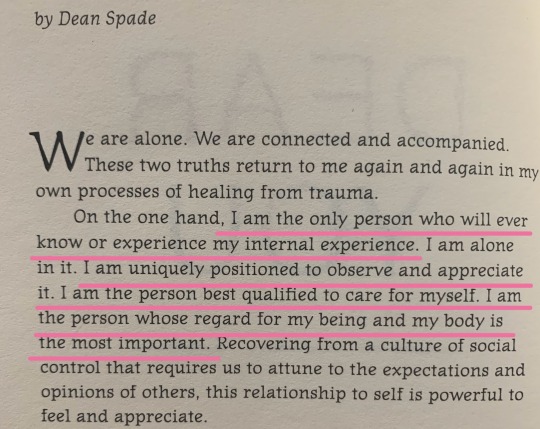
— Written on the Body: Letters from Trans and Non Binary Survivors of Sexual Assault and Domestic Violence
1 note
·
View note
Text
"Social media has encouraged our individualism and has enhanced the desire to 'brand' ourselves as radical or as having the 'right' politics. It is in the interest of corporations like Facebook and Twitter that we spend as much time as possible creating free content for them, and that we feel compelled to get approval on their platforms. All of this can motivate us to want to be perceived to be doing things, rather than actually doing them. Much mutual aid work is very ordinary, sometimes boring, and often difficult. To return to an earlier example, everyone wants a selfie with Angela Davis to post, but many people do not want to take the time to visit prisoners, go to court with people, wait in long lines at welfare offices, write letters to people in solitary confinement, deliver groceries to an elderly neighbor, or spend many hours in meetings about how to coordinate care for people in need.
When we get our sense of self from fame, status, or approval from a bunch of strangers, we're in trouble. It is hard to stick to our principles and treat others well when we are seeking praise and attention. If we are to redefine leadership away from individualism, competition, and social climbing we have to become people who care about themselves as part of the greater whole. It means moving from materialist self-love, which is often very self-critical ('I will be okay and deserve love when I look right, when others approve of me, when I am famous') and toward a deep belief that everyone, including ourselves, deserves dignity, belonging, and safety just because we are alive. It means cultivating a desire to be beautifully, exquisitely ordinary just like everyone else. It means practicing to be nobody special. Rather than a fantasy of being rich and famous, which capitalism tells us is the goal of our lives, we cultivate a fantasy of everyone having what they need and being able to creatively express the beauty of their lives.
This is a lifelong unlearning practice because we have all been shaped by systems that make us insecure, approval-seeking, individualist, and sometimes shallow. Yet we also all have the deeply human desire to connect with others, to be of service in ways that reduce suffering, and to be seen and loved by those who truly know us and whom we love. Mutual aid groups are a place where we can notice these learned instincts and drives in ourselves and unlearn them--that is, make choices to act out of mutuality and care on purpose."
Dean Spade, Mutual Aid: Building Solidarity During This Crisis (And the Next) (2020)
#i know its ironic to post this on tumblr#but like this is so good#this book helped me leave my horrible PhD program#and this passage is one that always sticks with me#i was always so obsessed with being a famous academic#now im like who gives af#mutual aid#christianity#dean spade
0 notes
Text
i finally finished them here are my mc kids in theri golf tier ouitfits
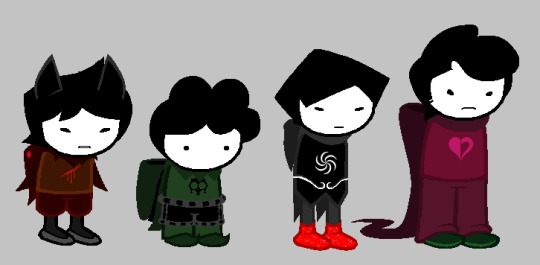
the original sprites that everyone and their mother has seen jesus christ thanks for over 700 notes on that btw /gen
ok now look at the new ones
#ignore how i gave dean sparkly shoes i know that’s a witch thing i just thought they’d be cute okay#and the obvious cod piece replacement i like the bugly shorts look#okay i took a lot of creative liberty with these thinking about it#i don’t have anything else to say#aquared homestuck au where the midnight crew are the kids and there are some other guys too i think#homestuck#homestuck fankid#the midnight crew#spades slick#clubs deuce#diamonds droog#hearts boxcars#i hope i’m not being annoying with these posts by any chance sorry i’m just silly
143 notes
·
View notes
Text
Mutual aid is the radical act of caring for each other while working to change the world.
Around the globe, people are faced with a spiralling succession of crises, from the Covid-19 pandemic and climate change-induced fires, floods, and storms to the ongoing horrors of mass incarceration, racist policing, brutal immigration enforcement, endemic gender violence, and severe wealth inequality. As governments fail to respond to—or actively engineer—each crisis, ordinary people are finding bold and innovative ways to share resources and support the vulnerable.
Survival work, when done alongside social movement demands for transformative change, is called mutual aid.
This book is about mutual aid: why it is so important, what it looks like, and how to do it. It provides a grassroots theory of mutual aid, describes how mutual aid is a crucial part of powerful movements for social justice, and offers concrete tools for organizing, such as how to work in groups, how to foster a collective decision-making process, how to prevent and address conflict, and how to deal with burnout.
Writing for those new to activism as well as those who have been in social movements for a long time, Dean Spade draws on years of organizing to offer a radical vision of community mobilization, social transformation, compassionate activism, and solidarity.
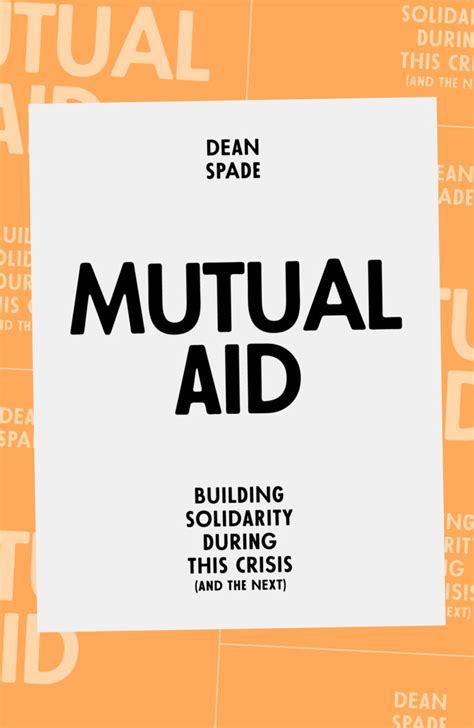
10 notes
·
View notes
Text
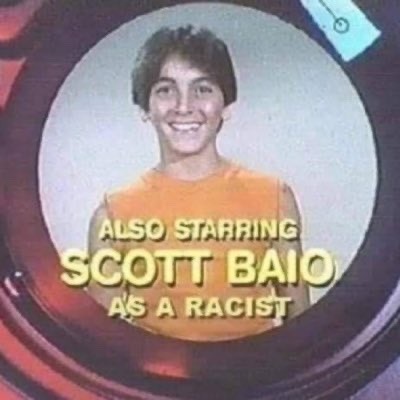
WTF happened to all the has been “stars” from the 80s (especially SNL) that they’re almost all openly racist Trumpublicans now?
#scott baio#80s#kirstie alley#kevin sorbo#victoria jackson#rob snyder#dean cain#joe piscopo#dennis miller#jon lovitz#david spade
99 notes
·
View notes
Text
Because of these complex dynamics, a big question for movements is how you tell whether a reform (that we’re proposing or that the powers that be are proposing) advances our struggle or recuperates their institutions?
Some of the criteria that I have found useful are: Will it provide material relief? Will this improve the life chances of people who are most vulnerable under the current conditions? Does it leave out an especially marginalized part of the affected group (such as people with criminal records, people convicted of “violent” crimes, or people without immigration status)? Is it a reform that says some groups (families, children, people with jobs, people with education) are deserving and should be given relief but others (single people, adults, poor people, people on benefits, people with criminal records, people without degrees) deserve to get targeted? Is it dividing our constituency, undermining our power, and exposing the most marginal people to more harm? Does it legitimize and expand the system we’re actually trying to dismantle?
And the question isn’t just about the content of the reform, but also how it is being fought for. Who’s pushing for it? Is it a bunch of people in suits behind closed doors, or is it most affected people in the streets fighting for this? Are we building power in this fight, power that we can keep using to continue the fight? Or is this reform coming from the powers that be, the sheriffs and prosecutors and elected officials saying they have solved the problem and we can all go back to sleep?
-- Dean Spade, “Now Is the Time for 'Nobodies'”
9 notes
·
View notes
Text
while it was not a part of my original reading list it did get added and boosted to the top of the queue as its timely
book 6 of the year is Dean Spade's Mutual Aid
currently about 40% through the book
how I found it
id heard of it before but a wonderful essayist I found via tiktok by the name of ismatu gwendolyn brought it to the forefront of my attention
heres their substack specifically about the book https://ismatu.substack.com/p/mutual-aid-is-mutual-recap-readings
but the whole substack is wonderful insightful and thought provoking
how I'm reading it
online ebook https://theanarchistlibrary.org/library/dean-spade-mutual-aid
and audio via a text to speech extension :)
thoughts
very informative has lots of examples of movements that I definitely have to look more into
like the young lords party or the oakland power projects
it bring up a lot of good points to consider in realtion to mutual aid as well as reactions to various crisis such as the way justice systems might over police people seeking aid as a way to catch suspected criminals
the writing is very easily digestible the text even provides charts to better explain and compare ideas and methods. I particularly like the chart on tendencies that harm groups. it addresses problems but also includes goals to be aiming for.
like I'm ecstatic that this book is solutions orinated.
its really invigorating and makes me want to read more theory because I feel this is giving me such a good base.
anywho back to reading i go :D
3 notes
·
View notes